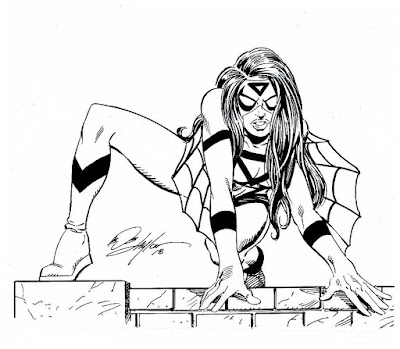The look of the video for their latest single, "Radio", is of the time when much of what this blog covers was created, but the sound is all modern! This new song from German heavy metal band Rammstein is a darker take on the same subject as Queen's "Radio GaGa"... and it's fabulous! (The video is pretty excellent too! I give 'em both 9/10 Stars!)
Take a look and a listen and feel free to let me know if you don't agree, either in the comments, or over on my Facebook page.
And if you don't understand German, here are the lyrics of "Radio" translated into English by Genius.
--
Radio Announcer: "Attention, attention. This is Berlin Königs Wusterhausen and the German Shortwave Transmitter. We're broadcasting dance music."
[Verse 1]
We were not allowed to belong
Not to see, speak or listen
But every night for an hour or two
I am gone from this world
Every night, a bit of happiness
My ear up close to the world receiver
[Refrain]
Radio, my radio
I let myself be sucked into the airwaves
My ears become eyes
Radio, my radio
So I hear what I do not see
Still secretly wanderlust
[Verse 2]
We were not allowed to belong
Not to see, speak or disrupt
Those kinds of songs were forbidden
Such dangerous foreign notes
So every night, a little happiness
My ear up close to the world receiver
[Refrain]
Radio, my radio
I let myself be sucked into the airwaves
My ears become eyes
Radio, my radio
So I listen to what I do not see
Still secretly wanderlust
[Bridge]
Every night I secretly climbed
On the back of the music
Put the ears to the wings
Sing quietly into the hands
Every night and again I fly
Just away with the music
Float through all rooms
No borders, no fences
[Interlude]
Radio, radio
Radio, radio
[Refrain]
Radio, my radio (my radio)
I let myself suck into the ether
My ears become eyes
Radio, my radio (my radio)
So I hear what I do not see
Silence secretly wanderlust
[Verse 1]
We were not allowed to belong
Not to see, speak or listen
But every night for an hour or two
I am gone from this world
Every night, a bit of happiness
My ear up close to the world receiver
[Refrain]
Radio, my radio
I let myself be sucked into the airwaves
My ears become eyes
Radio, my radio
So I hear what I do not see
Still secretly wanderlust
[Verse 2]
We were not allowed to belong
Not to see, speak or disrupt
Those kinds of songs were forbidden
Such dangerous foreign notes
So every night, a little happiness
My ear up close to the world receiver
[Refrain]
Radio, my radio
I let myself be sucked into the airwaves
My ears become eyes
Radio, my radio
So I listen to what I do not see
Still secretly wanderlust
[Bridge]
Every night I secretly climbed
On the back of the music
Put the ears to the wings
Sing quietly into the hands
Every night and again I fly
Just away with the music
Float through all rooms
No borders, no fences
[Interlude]
Radio, radio
Radio, radio
[Refrain]
Radio, my radio (my radio)
I let myself suck into the ether
My ears become eyes
Radio, my radio (my radio)
So I hear what I do not see
Silence secretly wanderlust
--
Rammstein's new album is available for sale on May 17, 2019. Get it! Get it NAUHW!
























%20(Yasujir%C3%B4%20Ozu,%201957).jpg)






.jpg)
